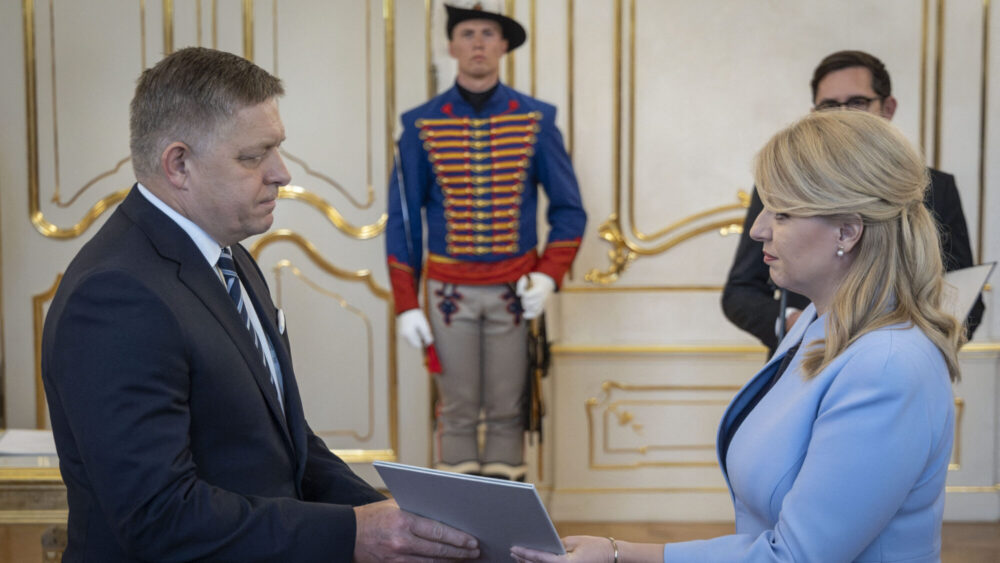
New Slovak Prime Minister Robert Fico is appointed by President Zuzana Caputova
Credit: TOMAS BENEDIKOVIC/AFP
Political change in Bratislava is unnerving EU elites as a new multiparty coalition government with NATO-critical stances took charge almost a month after parliamentary elections that saw a left-populist party led by former Prime Minister Robert Fico and his Smer party come out on top in a result that could change internal EU dynamics.
Fico and his cabinet were appointed Wednesday afternoon, with the new ruling coalition in Bratislava consisting of Smer, the centre-left HLAS (Voice), as well as the nationalist Slovak National Party (SNS) with 79 out of 150 seats in the Slovakian Parliament.
A NATO and eurozone member, Slovakia has economically fared badly due to the war in Ukraine, with Fico vowing to cease aid to Ukraine and back peace talks between the Kremlin and Ukraine.
Politico reports that Eurocrats are fearful of a growing anti-war bloc within the EU, with officials privately lamenting the quick formation of the new Slovakian government, which will enable Fico to attend this week’s EU Council meeting in Brussels.
Noted for transitioning from post-Soviet social democracy to a type of left-wing populism in recent years, Fico has served as Slovakian prime minister twice before and was forced to resign following allegations that elements of the Slovakian state conspired to murder investigative reporter Ján Kuciak in 2018.
While the formation of the new Slovakian government occurred largely without incident, President Zuzana Čaputová almost triggered fresh political uncertainty when she refused to appoint an environment minister from the nationalist SNS due to his denial of man-made climate change.
Contemporary Slovakian politics is known for its heavy political fragmentation and has been plagued by internal turmoil since the fallout from Ján Kuciak’s murder, and made worse by the economic fallout of the Ukrainian war, with the ruling centre-right coalition collapsing in December 2022.
Fico and his new administration have already earned the ire of progressives, with his Smer party ejected from the European Parliament’s centre-left S&D group for its willingness to cooperate with nationalists and lack of support for Ukraine.
Progressive commentators have expressed fears that Fico will aspire to mimic the conservative policies of Hungary’s Orbán government, though this has been downplayed by other pundits who point out that the new three-way coalition government between Fico’s post-left social democrats and nationalists is by its very nature far less stable than Fidesz.
Throughout the campaign, Fico outlined the need for Slovakia and Europe to take an independent geopolitical path when it comes to Ukraine and relations with Russia, vowing not to send “another bullet” to the warzone.
Bratislava’s new administration comes as the EU prepares to begin preliminary talks for Ukraine’s EU accession, with many member states already expressing private reservations about integrating Ukraine, with France suggesting the creation of a two-tier union to manage Ukrainian membership.
